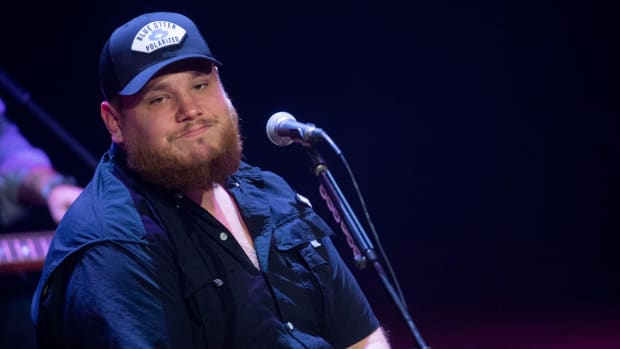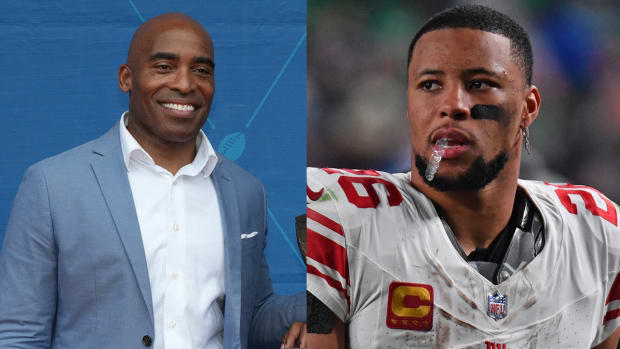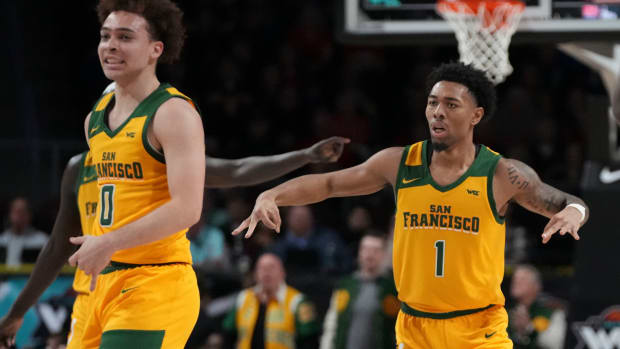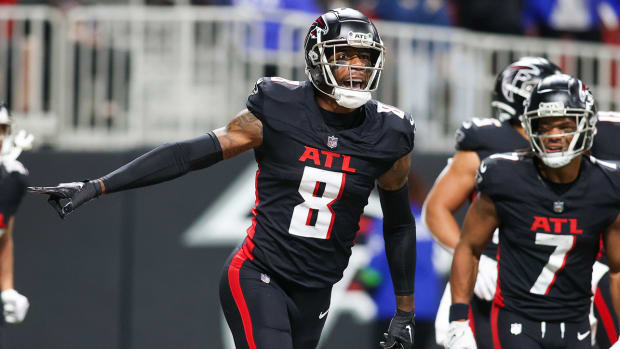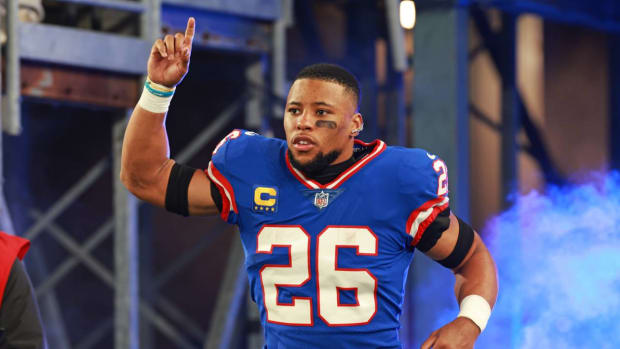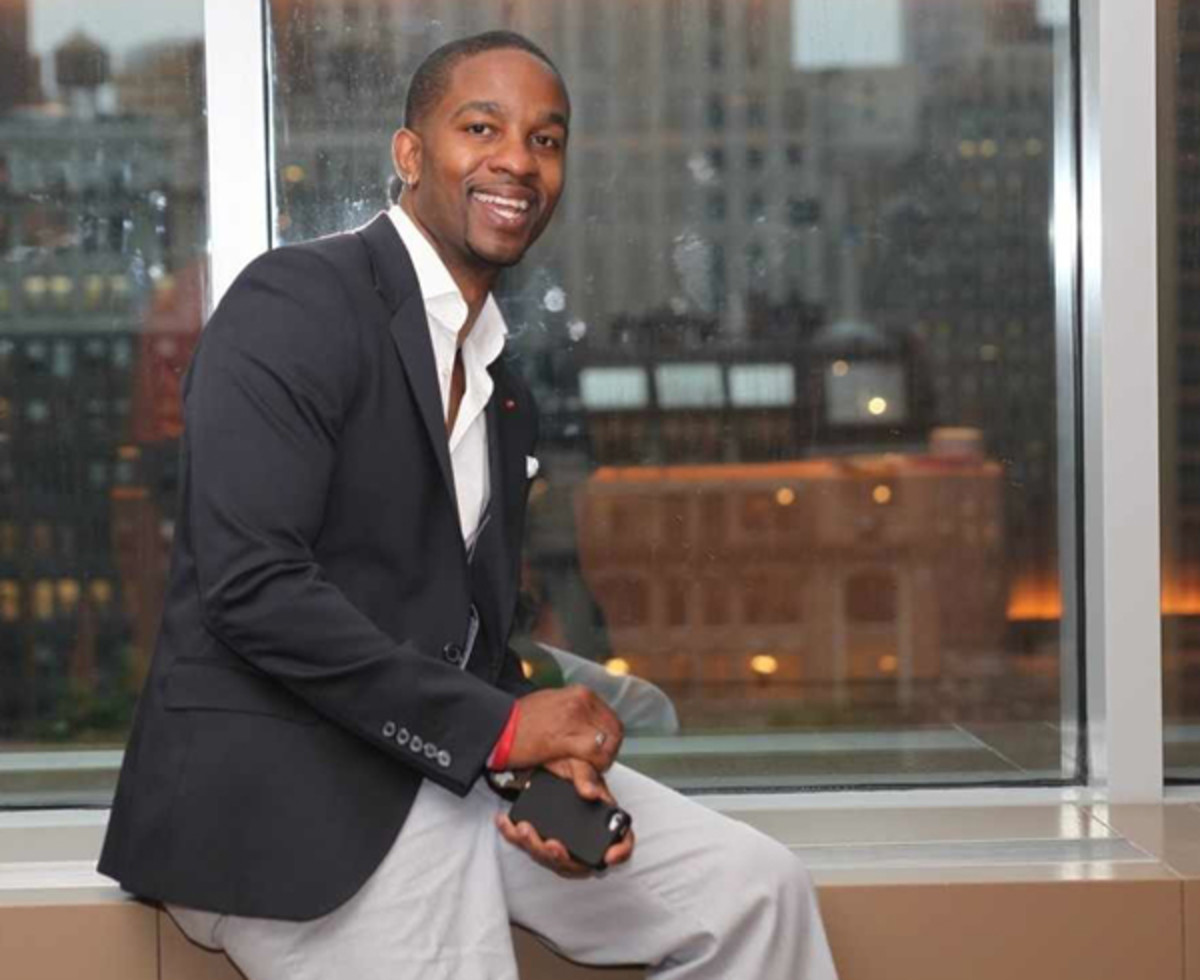
"Rodgers Reminds Us That Speculation Is Sport": Q&A with the Director of You Can Play
Wade Davis spent four years as a cornerback on NFL practice squads and in NFL Europe before an injury forced him to retire in 2003. Nine years later he publicly came out of the closet, and has since made it his mission to ensure that lesbian, gay, bisexual, transgender or questioning (LGBTQ) athletes don't have to wait until their playing days are over to be themselves.
In late August, Davis was named executive director of You Can Play, an organization out to end homophobia in sports. You may have seen someofitscommercials. After a complicated few weeks that saw Chris Kluwe accuse the Vikings of homophbia, Aaron Rodgers have to make a statement about his sexuality, and Torrey Smith be taken to task over a homophobic remark, to name a few, we reached out to Davis to learn more about You Can Play's progress.
After your career in the NFL and NFL Europe ended, you went into media and education, and then eventually became an activist. What compelled you to go in that direction?
I played in the New York Gay Flag Football League. That was one the first places where I found other gay athletes that liked sports. As I was playing and coaching a team, teaching these guys the game of football, they kept telling me how impactful it was that I, this ex-NFL football player and athlete, took the time to teach them. A couple of friends were said, “This is something you're great at.” So I figured I’d do some volunteer work.
I was going around speaking to young kids and doing work with them, and it felt like home. Then I took a job at the Hetrick-Martin Institute, which is a support organization for LGBTQ youth. Being exposed to young people who sit at the margins, who show amazing levels of determination and strength, let me know my voice was important. So many would say, “Wow. You were an NFL player, and you’re out and you’re gay and you’re not afraid to live in your truth. You really inspire me.”
Last August you transitioned from being on the You Can Play board to the role of executive director. What spurred the move?
When Patrick Burke, the co-founder and former executive director of You Can Play [ed's: and son of current Flames president and GM Brian Burke], said he was looking to move into a different role and start working with the NHL, he told me I'd be perfect for the job. I had never thought about it. But the more that we talked the direction that Burke wanted You Can Play to go, I realized I was uniquely positioned for it.
Patrick and the other two founders, Brian Kitts and Glenn Witman, wanted LGBT voices to be part of the actual movement. I think Burke felt that straight allies have generally dominated the narrative, that their stories were being told more often than the people they were advocating for. The Brendon Ayanbadejos or Chris Kluwes of the world, even the Patrick Burkes—their stories are important, but they don’t really tell the day-to-day lived experience of what it means to a LGBTQ athlete. With my background being an athlete, being gay, and also the work I’ve done with LGBTQ youth, I have background knowledge and lived experience that probably no one else has.
What's your take on Chris Kluwe’s account of homophobia among the Vikings coaches and front office?
If what he wrote is true—and I have no reason to suspect otherwise—it’s really terrible. It’s terrible that his coaches would tell him his own beliefs are secondary to sport. But we focus only on the negative part of what Chris wrote. We go with the story that is quicker to pick up headlines: Homophobic coaches. In the piece Chris said that the Vikings’ owner, Zygi Wilf, supported his advocacy. He talked about how his own teammates were supportive. When we read about the three coaches, we think the NFL is all like them. Why don’t we think the NFL is like his owner or his teammates? Most people are more like the latter.
To keep it in the NFC North: Aaron Rodgers recently had to address rumors that he's gay. For all the progress that's being made on the tolerance front, there's clearly lots of work that has to be done.
The Rodgers thing reminds us that speculation has become sport, and that people don’t realize how speculation about sexuality impacts players’ lives, both on and off the field. Many athletes never expected to have this sort of speculation in their lives. People no longer see them as human beings.
Where do you see You Can Play headed in 2014?
First, we want to focus on the youth element. Late last year we started the High Five Initiative with the NFL. It sends current and former players to LGBT organizations to visit and experience the daily lives of LGBT youth. Troy Vincent and Dwight Hollier, both former players and in the head office of the NFL, went to Hetrick-Martin. We want the players and kids to have conversations, not just a question and answer. We want them both to look at how their lives intersect and find similarities. We hope to move through various sports leagues with this initiative.
Then we want to talk about how sexism informs homophobia, how those two things often overlap, and how gay males—even closeted ones—practice homophobia themselves with homophobic language. When I played, I would say terribly homophobic things. We want people to know that internalized homophobia is a real thing.
Finally, we want to change how we view sports. When someone is asked to describe the NFL, they will probably use words like “masculine” and “violent.” But it’s also about teamwork and family. We want to broaden the perspective on how we talk about sports so that LGBT youth see it differently.
One of your other endeavors is the project YOUBelong, which focuses on LGBTQ youth athletes. Why is it important to you to focus on youth?
Sports is one place that creates a family and a community. Oftentimes, LGBTQ individuals are in search of those things. This should be a space to find just that, yet kids who identify as LGBTQ often feel that sports is the last place they should be. Sports aren't inherently homophobic; no one ever told me I couldn’t be gay and play sports. No one explicitly said that. But you equate being gay with being feminine or less than, and you equate playing sports with being masculine and being power and all these things. We want to change that narrative.
I know that as a person who was in the closet, in a lot of ways, sports saved me. I felt safest when I was with my teammates on the football field. When I actually felt the most vulnerable was when I was alone, living inside my head. If I can help in any way to give young people access to this space where they can feel safer, then I need to do everything I can to do that.
Jessica Luther is a writer and journalist who lives in Austin, Texas. Her writing on sports have appeared at
,
,
, S
, and in
. Her site and podcast about sports and culture is Power Forward.

